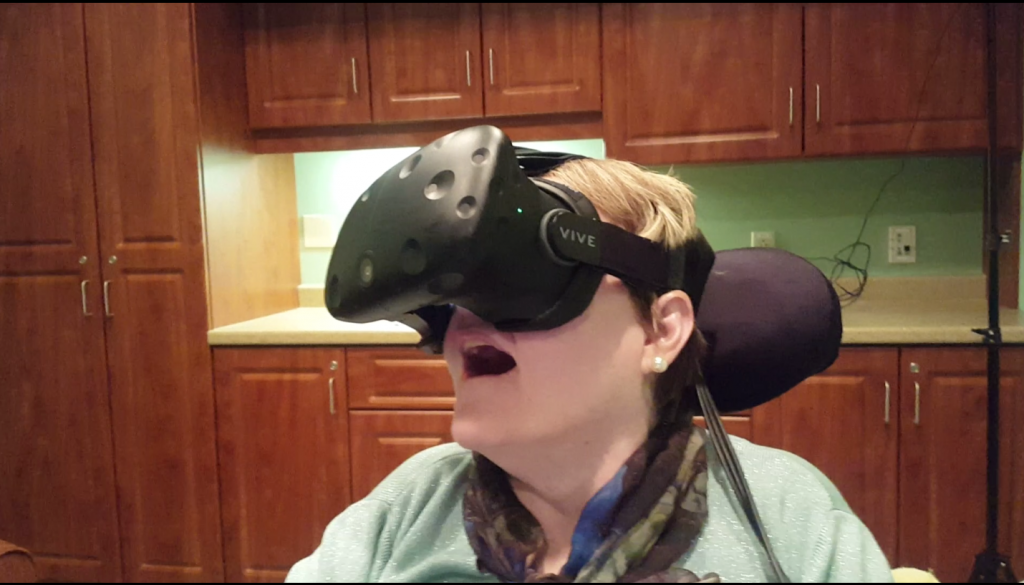Virtual Reality for People with Dementia and Mild Cognitive Impairment

Award Date: 2018
Project Lead(s): Lora Appel, Assistant Professor of Health Informatics
Project Title: VRx: Design & Evaluate Virtual Reality based therapy for people living with dementia & mild cognitive impairment
What is the issue?
People with dementia may experience responsive behaviours, such as aggression, refusal to cooperate, violence, apathy, and wandering. Healthcare professionals caring for them often resort to antipsychotic and sedative medications and physical restraints. Many of these approaches do not work and can have serious negative side effects.
What did we do?
We conducted a study to assess whether virtual reality was safe and feasible for seniors with dementia and whether it could reduce responsive behaviours. Participants in an acute care hospital watched a sequence of videos depicting a rocky lakeshore, a sunny forest, a dense forest, floating icebergs, and a sunny beach. They watched five videos, each three minutes long, for a total viewing time of 20 minutes.
What did we find?
We conducted 18 virtual reality sessions with 10 participants who had a range of dementia severity. Preliminary results showed that the technology was safe and feasible. A majority of participants said the headset was comfortable, and there were no signs of distress. However, none of them wore it for the entire 20 minutes. Most participants spoke out loud or laughed during the sessions. Many also reacted physically, by reaching out with their hands or legs, pointing and waving, or wiggling their toes. None of the participants experienced responsive behaviours while using virtual reality.

